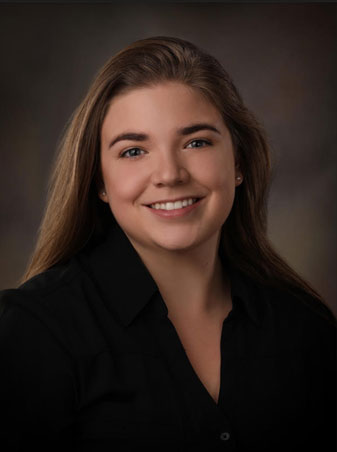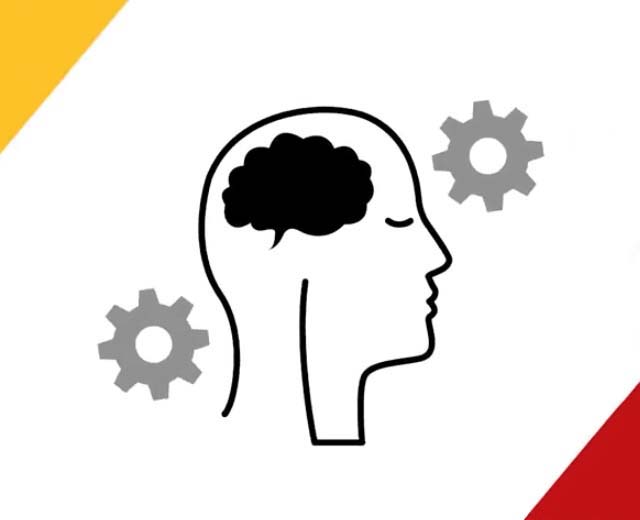Mental health service providers are needed now more than ever to tackle our nation’s growing mental health crisis. The shortage of qualified professional helpers is calculated to extend into 2036, according to the Health Resources and Services Administration. According to the Bureau of Labor and Statistics, rates of substance abuse, behavioral disorder, and mental health counselor jobs are projected to grow 18 percent from 2022 to 2032, with an average of 42,000 jobs opening each year.
University of Maryland Global Campus (UMGC) has committed to filling this gap by introducing a new program: the Master of Science in Clinical Professional Counseling (MSCPC). This 60-credit program provides students with fundamental skills, knowledge, and competencies that support counseling licensure. UMGC’s first cohort will begin in fall 2024, and the program will be offered to Maryland residents for the 2024-2025 academic year with plans to expand in the future.
“The clinical professional counseling program at UMGC prioritizes practical and applied skills, equipping students with a diverse set of counseling techniques, emphasizing ethical and legal considerations, and providing training in psychological assessment and diagnosis,” says Phyllis Medina, PhD, program director for the MSCPC program. “The goal is to prepare graduates for licensure and successful practice as independent and effective counselors in various mental health settings.”
UMGC learners grow in their confidence and capabilities through 700 hours of supervised practicum and internship experiences. This gives students the opportunity to perform the work of a counselor under the guidance and supervision of an experienced practitioner.
What is the difference between a master’s degree in clinical professional counseling (MSCPC) and other psychology master’s degrees?
An MSCPC degree prepares students for careers as licensed professional counselors. MSCPC training extends beyond coursework to include supervised clinical fieldwork experiences. During practicum and internships, students apply their knowledge in real-world settings and practice their interviewing, case conceptualization, and therapy skills in an ethical, culturally informed, scientifically supported way under the direct supervision of a licensed professional.
While supervised, in-the-field practicum experiences set a master’s in clinical professional counseling program apart from non-clinical psychology master’s degrees, allowing MSCPC students to learn the fundamentals through focused coursework. Courses in the program emphasize current best practices in counseling theory, psychotherapy practice, assessment methods, cross-cultural and trauma-informed care, and ethical standards.
What careers could a master’s in clinical professional counseling help prepare you for?
With licensure, a master's in clinical professional counseling graduate is equipped for various careers. Licensed Clinical Professional Counselors (LCPCs) can establish private practices, provide therapy in mental health clinics, or take on leadership roles as clinic directors or clinical managers in healthcare settings.
Experienced LCPCs may become clinical supervisors, training the next generation of effective and ethical counselors. LCPCs can work as trauma therapists, forensic counselors, and military and veteran counselors. Additionally, LCPCs can work as Employee Assistance Program (EAP) counselors, offering short-term support to employees, or serve as community mental health counselors, addressing the mental health needs of diverse local populations.
The growing field of telehealth also opens opportunities for LCPCs to provide online counseling services, while those with specialized training in addiction can work as addiction counselors in rehabilitation centers or outpatient clinics dedicated to substance abuse treatment.
“Counseling provides a safe space for individuals to explore their emotions, behaviors, and thought patterns,” says Medina. “By offering fresh perspectives and understanding, counseling can lead to improved mood and better management of mental health conditions.”
Does a master’s in clinical professional counseling prepare you to become a therapist?
The master’s in clinical professional counseling program intentionally prepares students for careers as therapists.
“Overall, a master's in clinical professional counseling is a recognized and common pathway for individuals seeking to become licensed therapists,” says Medina. “At UMGC, this program equips students with the knowledge, skills, and practical training necessary to provide therapeutic interventions and support for individuals dealing with various mental health issues and life challenges."
Upon completing a master's in clinical professional counseling and fulfilling any additional state-specific licensing requirements, one can pursue licensure (e.g., Licensed Clinical Professional Counselor or similar titles, depending on the jurisdiction). With this licensure, graduates are qualified to work as therapists in various settings, including private practice, mental health clinics, hospitals, community agencies, school counseling, and other healthcare organizations.
Licensing requirements vary by state or country, so those interested in becoming therapists should familiarize themselves with the specific regulations and licensure processes in the location where they plan to practice.
What is the difference between clinical professional counseling and clinical psychology?
Both clinical professional counseling and clinical psychology center around supporting individuals with mental health concerns, but key differences exist in their focus, training, and scope.
“The distinction lies in the depth of training,” says Medina. “Clinical professional counselors specialize in applied counseling techniques, while clinical psychologists have a comprehensive understanding of psychological conditions and therapies.”
Clinical professional counselors focus their training on applied therapies that address a variety of psychological stressors and life events. Licensed counselors typically have master's degrees in counseling or related fields and provide therapy to individuals, couples, families, and groups. They focus on addressing mood and anxiety issues, personal growth, and relationship challenges using various therapeutic techniques.
In contrast, licensed clinical psychologists carry the protected title “psychologist,” have doctoral degrees in psychology, and are trained to diagnose and treat mental illness using a variety of personality and neuropsychological assessments and evidence-based interventions. Many psychologists have concentrated training in research and often specialize in subfields like forensic, health, or neuropsychology.
UMGC's new program is a master’s in clinical professional counseling, which emphasizes a practical, applied approach to mental healthcare. Graduates do not become psychologists upon licensure, rather licensed clinical professional counselors.
What current and future trends does the UMGC Master’s in Clinical Professional Counseling program prepare students for?
While pursuing a master's degree in clinical professional counseling, UMGC students are prepared for landscape-shifting industry trends, including:
- Telehealth and technology integration. The COVID-19 pandemic saw a huge shift in how professional counselors delivered their services – a trend that has only continued to grow. Technology innovations, like cognitive behavioral therapy “homework” apps, mindfulness reminders, and thought trackers are also on the rise. Those seeking licensure will need to be competent at providing counseling services remotely and incorporating technology into their practice.
- Assessment and treatment of trauma. The field of counseling is also expanding its definition and understanding of psychological trauma. In the MSCPC program, UMGC students will study trauma-informed care, recognize the impact of trauma on mental health, and learn evidence-based approaches to trauma treatment.
- Equity, diversity, and inclusion. Well-trained counselors understand that their clients exist in their own cultural context; and they recognize and make moves to correct mental health disparities that exist across the sociocultural spectrum. Our program acknowledges the importance of inclusive counseling practices, of addressing the unique needs of clients from diverse backgrounds, and of advocating for the needs of underrepresented groups.
- Mindfulness and holistic practices. While earning their counseling degree, students can also learn about evidence-based mindfulness practices and holistic techniques designed to help clients cultivate present-moment awareness, develop greater self-compassion, and enhance psychological resilience.
- Integrated healthcare delivery. As the field of mental health shifts towards an integrated and preventive approach, students can explore the collaborative nature of integrated behavioral health. Mental health professionals work alongside medical professionals, occupational and speech therapists, and psychologists to address both physical and mental health concerns.
Staying up to date with these industry trends enhances students' adaptability and positions them to provide effective, informed, and culturally sensitive counseling services.
“As the mental health field shifts towards an integrated and preventive approach, students can explore the collaborative nature of integrated behavioral health,” says Medina. “Mental health professionals work alongside medical professionals to address both physical and mental health concerns.”
With a master’s in clinical professional counseling, students can meet the growing need for trained mental health professionals ready to take on roles as licensed practitioners. Upon obtaining licensure, graduates are primed and ready to enter the world of professional helping, prepared to join the ranks of those willing to address our nation’s mental health crisis.
Reference on this webpage to any third-party entity or product does not constitute or imply endorsement by UMGC nor does it constitute or imply endorsement of UMGC by the third party.

/blog-umgc-undergrad-psychology-degree-linklist-GettyImages-1280190193.jpg)
/blog-umgc-students-listen-to-music-when-studying-linklist-shutterstock-1894586779.jpg)
